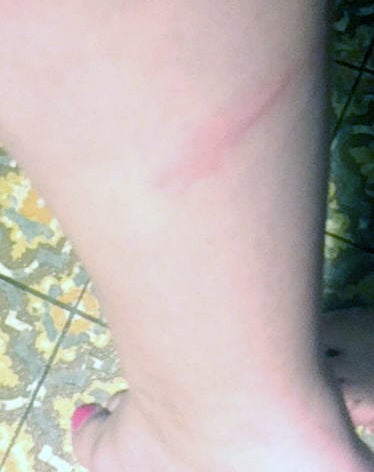BROOKSTON — “I never reacted like that to a mosquito bite before,” said Samantha O’Connor.
The bite turned into a welt about three inches long and an inch wide.
When she went to the emergency room the next day, the news was that things would get worse within the next few days.
Blood tests showed that O’Connor had contracted West Nile Virus while on her back porch Sept. 27, and after three days, she had a 102-degree fever, aching in her joints and bones and the rash, which looks like chicken pox.
“I was very, very lucky. I dealt with it for about two-and-a-half weeks,” she said.
But it’s not over yet, and she doesn’t want others to contract the disease.
At the Oct. 10 Brookston Town Council meeting, she asked town officials to resume mosquito spraying and fogging in town.
She and husband Scott O’Connor told the council members that they live across from the ball fields, down the street from the senior housing and near a daycare.
Although she had the lesser febrile symptoms of fever, aches and flu-like reactions, West Nile can cause a more serious meningitis or encephalitis, she said.
She’s concerned that the disease could strike a child or senior citizen.
“I don’t know if they would’ve been able to survive it,” she said.
After two-and-a-half weeks, she has healed to just the rash, but “it can take up to three months to work itself out of your system,” she said.
The symptoms can recur anytime for a few months, and someone with the disease can test positive for the antibodies for a year.
The disease has also been costly for her, between the emergency room visit, blood tests and care.
Council President Joe Butz said the town last sprayed for mosquitoes around July 4. That was done by Max Eldridge, the former town superintendent, who still is licensed to do it.
However, the current town superintendent, Cory Houchens, and town worker Emmet Olis-Cartmell haven’t passed their certification test and are re-taking it on Oct. 24.
“Hopefully, we’ll have someone qualified to do that. If not, we’ll find someone,” Butz told O’Connor.
The town will also check with the county and other places for funding for spraying, he said.
O’Connor said her reason for being public isn’t to get her story out, but to prevent other stories.
“I would hate to see the same thing that happened to me happen to someone else if it doesn’t have to happen. If our town has the ability to fog and eliminate this, why aren’t they,” she said.
She also encourages people to dump standing water and eliminate other mosquito-breeding areas.
“I know there’s no way to eliminate this completely, but I’d like to see the town do what it can to eliminate the risk,” O’Connor said.







